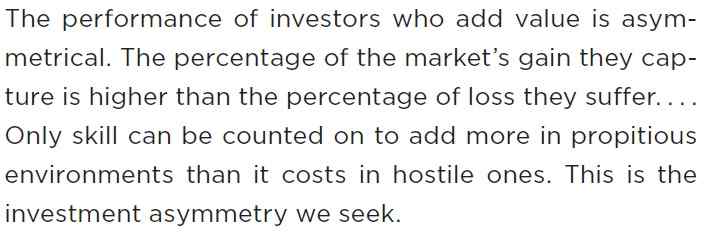It is always important to be defensive and aggressive over a different period of time. We cannot be defensive for every time or aggressive all the time. The most important is when we should become defensive and when we should become aggressive, it matters a lot. If we become defensive at the bottom of the cycle and aggressive at the top of the cycle then it will be dangerous for our wealth.
We require aggressiveness, timing and skills for achieving success. Aggressiveness at the right time creates a fortune.
For getting success, we have to focus on key elements mentioned by Mr Marks.
- Risk in our portfolio in the cycle, which assets we are holding in the portfolio and among those which are overweight or underweight.
- Aggressiveness such as holding second-grade assets, leverage, macro dependent investment, putting more capital at risk. Defensive investment such as holding cash than securities, safer assets, avoid leverage. Selection from above both depends on where we stand at the cycle and what can be a future market development.
- The skill requires to make a balanced decision. Luck required when randomness has more effects on the events. Skills help us to make a decision in the portfolio but luck can fail our right decision or proven to succeed in our wrong decision in the short run. Skills win the battle in the long run.
When we found that we are positioned in the cycle where pessimism at lowest, the economy has better development, etc. and we have become aggressive towards portfolio positioning then it will reward us with greater profits while the market does well as per our assumption. And also incur losses if the market does not work as per our assumption.

Being right is not into the control of anyone due to the involvement of randomness and luck factors.
When we found that the economy started being optimistic, the psychology of investors started optimistic, good news started flowing then we need to cut position in our portfolio which we feel overpriced. This effort helps us to reduce risk when slowdown or recession occurs. But this decision requires a skill set otherwise we will underperform the market at whole.

We always have to keep in mind that when the market is low in the cycle then the probability of losses is low and the probability of making profits is higher. Reversely, when the market is high in the cycle then the probability of incurring losses is higher and the probability of making profits is lower. We cannot predict the outcome but we can take advantage of the cycle by making an assumption of it.
After identifying the market cycle, we need to make a selection of the assets. If the price of the asset is lower compared to its intrinsic value then it will do better than other assets. And if the price of the assets is higher compared to its intrinsic value then it will not do much better than other assets. We also should focus that whether the intrinsic value of the assets has scope for further growth or not.
Theoretically, it quoted that the market is efficient and all the information is available with everyone so that no one can make profits from it. But reality shows something different. It shows that few people can think differently from the crowd and get above average than all. This is called second-level thinking where we need to think wise and differently from the crowd. Those who use second-level thinking they can do above average than consensus. This is key to assets selection.
Winners have a tendency to fall less than the market and during the rising market, they meet the market. And those who do not have a skill, they fall more than the market and does not have a higher return when market raises.
Aggressive investors with superior insights, fall slightly more than market in falling time but raise more than market in good time. Whereas defensive investors with superior insights, outperform in the worst time and underperformed the market in good time. We need to keep a balance between both. The person who can make a balance between both aggressive and defensive with superior insights, that investors outperform the market at the worst time as well as in the good time also.

Disclosure – Companies mentioned in the article are just for an example & educational purpose. It is not a buy/sell/ hold recommendation.
Read for more detail: Mastering The Market Cycle: Getting the odds on your side by Mr.Howard Marks












